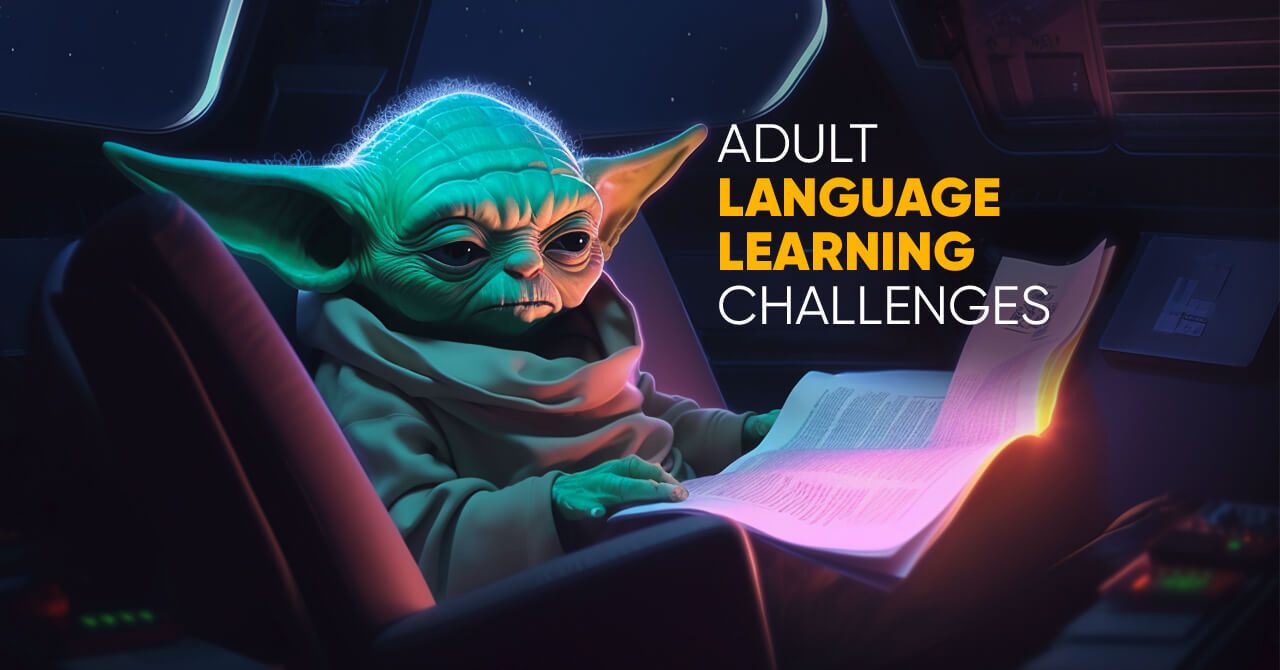
Is It Difficult to Learn Languages as Adults? Does a Talent for Languages Exist?
The challenges we face as adult language learners are varied, and we might be tempted to believe that they depend on talent. Is it really so?
The challenges
Sounds
Firstly, the SOUNDS are unfamiliar. We feel stupid and uncomfortable when we pronounce them, if not even more stupid when listening to them. All of this could be the first impact a new language has on us. Let’s take a Spanish-speaking Italian learner as an example: they might think that they have an advantage because the two languages are similar, and then when in Italy, they can barely say anything, or they face embarrassing moments of silence because they lose confidence in front of a native speaker. But why is it so? “They speak TOO fast, I know I can understand,”—one might say. Sure, but is this the only reason you can find?
Memory
I am pretty sure that we can agree that another major challenge we face is MEMORY. It is so frustrating to spend an entire week learning every day just to forget everything or almost so the week after, isn’t it? Is it just a matter of memory?
Comprehension
The third and last challenge that I would like to mention here is the written COMPREHENSION of texts that we desperately want to be able to read, like Italian novels or English essays. It takes a lot of time to acquire such skills, so to “read fluently” like it’s a leisure activity and not just an exhaustive learning session. And meanwhile, we get discouraged and give up. But why? Why can’t we just continue with or without motivation?
How do we come about all of this, and how can we joyfully learn as adults?
Alexander Z. Guiora believed that everyone has and develops a “language ego,” i.e., a set of memories and default behaviors (aka ego) related to the language(s) we learned as children (before 12). This is because not only is there a critical period between 6 and 11 years old in which we learn sounds, morphology, and syntax at the best of our capacity, but also because we mature a sense of self related to our linguistic experiences. Probably all of us can recall some moments in which we were listening to adults speaking, and it felt like another world to us toddlers, who used to imagine money falling down from trees or cars as spaceships or other similar kinks (I know you had one too 😉 ). That was not our world and who we were at that time. But then we went past these moments and forgot about them; we’ve developed other memories of us being able to understand, listen, write, and say almost whatever we wanted, especially if we had studied the language(s) at home or at school when we were 6-11 years old. So now we know DEEPLY that we ARE readers, speakers, listeners, conversationalists, and writers. But when we learn another language as adults, we don’t have these memories of ourselves in a foreign language! Even “worse,” we DO have memories of ourselves as readers, speakers, and so on, which are actually interfering with our learning journey. They are there reminding us of who we are, and hence we need them. They are our memories, but they are also reminding us what we are already capable of doing, even though we can’t yet and will never be able to learn a language the same way we did before 12.
So, next time you’re learning, be mindful that there is a part of you that does the job pretty well; that you feel a BIG taste gap between who you know you are and who you see when learning. Be kind and patient with yourself because practice doesn’t make perfect; it makes you better. And it really does. Be humble and proud, and never forget your learning objectives. If you are here, you are probably already doing this 😊.
Hello! I'm an Italian and English tutor. I have a Degree in Foreign Languages and I have worked with over 120 students. These are my thoughts, experiences as an adult language learner and a tutor.

